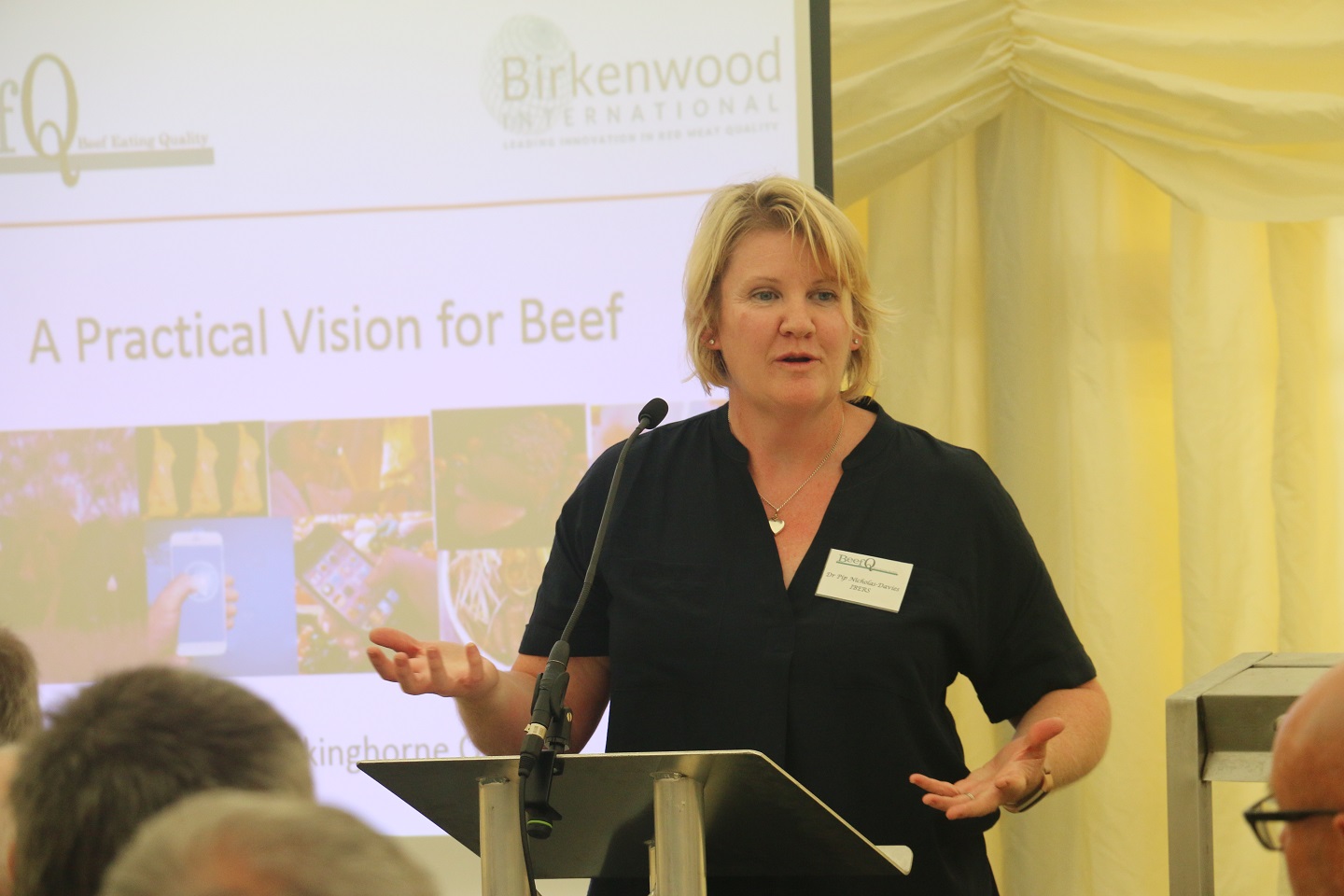Views sought on valuing beef in new way

Dr Pip Nicholas-Davies
12 February 2021
Evaluating beef in a new way could leave consumers more satisfied at meal times, according to researchers.
A new grading system for the meat would build on the existing strengths of Welsh farming and could guarantee consumers a consistent eating experience.
Using a new method of valuing beef was suggested to the food and farming sectors during webinars organised by the Aberystwyth University-led BeefQ project.
Members of the beef supply chain are now being asked to take part in a consultation to share their thoughts on the proposal.
BeefQ Project Manager, Dr Pip Nicholas-Davies said: “We are looking at ways to ensure a consistent eating experience for consumers, as after all, a customer will buy a product again and again if it meets their expectations. Welsh Beef is renowned for its extrinsic qualities including origin, production systems, welfare and carbon footprint. However, beef in general can sometimes vary when it comes to intrinsic quality attributes such as tenderness, juiciness and flavour.
“Consumer taste panels were conducted and revealed that people say they are willing to pay double for the highest quality product. The taste panel information gave us the opportunity to develop a beef eating quality prediction model which has the potential to lead to a guaranteed standard of eating quality and increase consumer confidence in Welsh Beef.”
Producers could also benefit from the new method by being rewarded for both yield and quality.
Deanna Leven, Export Market Executive at Hybu Cig Cymru – Meat Promotion Wales (HCC) said:
“We already know that beef is produced to an exceptionally high standard in Wales. That’s thanks to sustainable farming practices, first-class animal husbandry and pasture land management. This combination, however, does not always guarantee a consistent eating experience for consumers.
“Farmers have a critical role in setting the potential value for eating quality. The maximum potential for yield and eating quality is set at conception, so everything from genetic selection, pre-birth nutrition in the cow and post-birth nutrition, to good stockmanship, the highest standards of health and stress-free handling, influences the end product.”
Deanna previously worked as a grader for Meat Standards Australia (MSA). She added: “An eating quality system has been in place for 20 years in Australia and it is now considered a critical marketing tool. It is difficult to sell product that isn’t MSA graded to the food service sector because people can see the benefit of a product that is of guaranteed eating quality.”
Dr Pip Nicholas Davies from Aberystwyth University said: “The next step for the BeefQ project is to find out if this is something the industry wants. We would therefore encourage anyone working in the beef supply chain, as well as catering and hospitality sectors, to complete the survey. Their responses will contribute to recommendations on the system’s feasibility, if and how it could be implemented and the barriers perceived in doing so.”
The consultation survey can be accessed on the BeefQ website until 31 March 2021:
http://www.beefq.wales/survey.html
The Aberystwyth University-led webinars can be viewed by going to: http://www.beefq.wales/events.html



